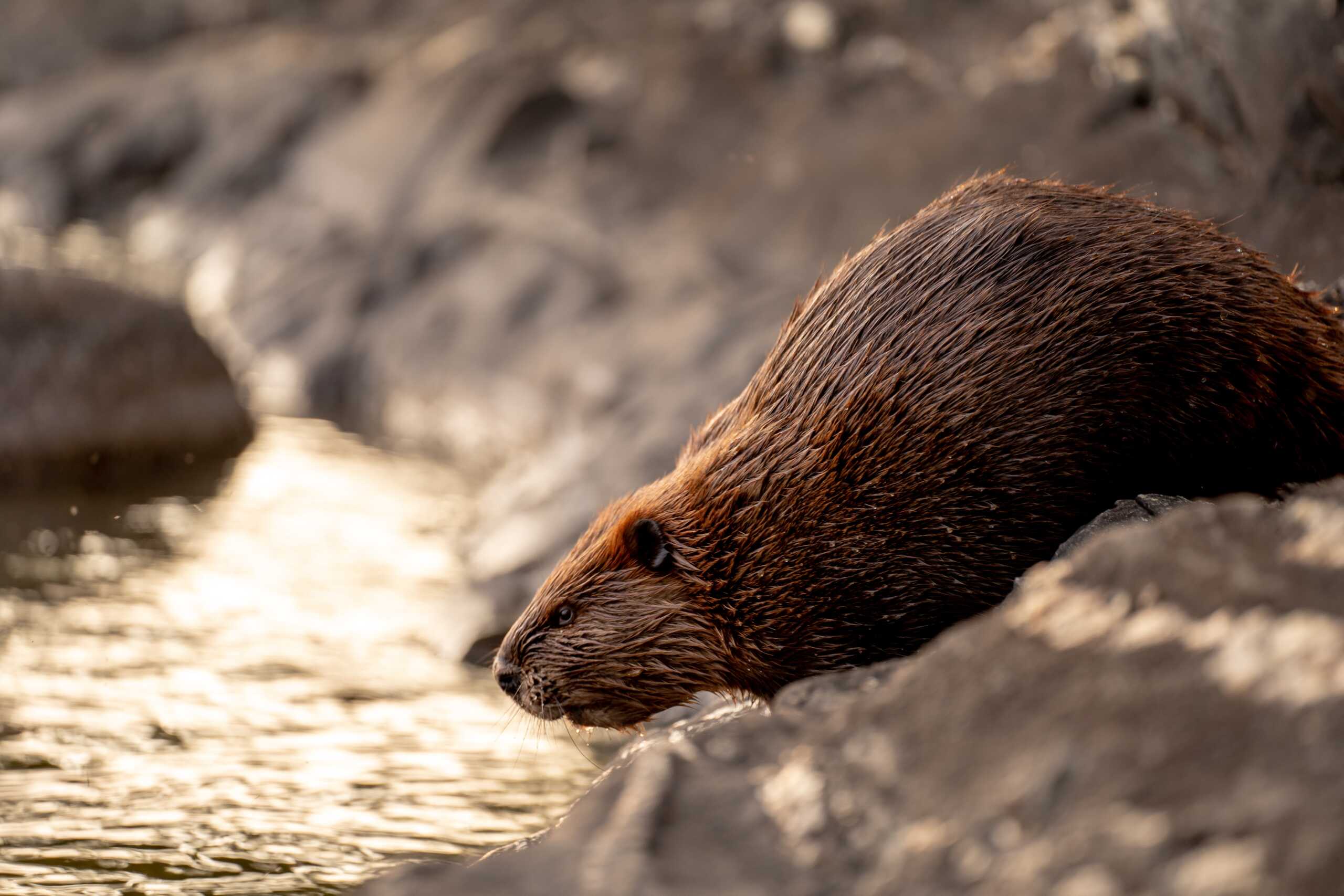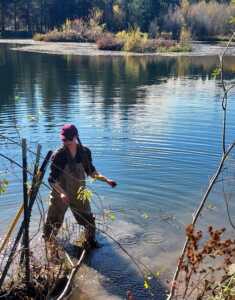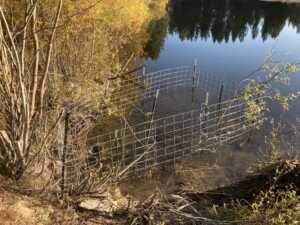Making Progress with Beaver Conflict Resolution
February 14, 2022

Summary of the 2021 field season of the Montana Beaver Conflict Resolution Program
by Anne Greene

During the 2021 field season, Elissa Chott was busy as a beaver. It’s hard to avoid the comparison since Elissa is the beaver specialist with the Montana Beaver Conflict Resolution Program, a partnership between Clark Fork Coalition, The National Wildlife Federation, and Defenders of Wildlife. This last field season, she accomplished a lot! The goal is to encourage beavers in appropriate areas of the Clark Fork River Basin where Elissa and her volunteers resolve conflicts with landowners and spread the good word about beavers along the way.
Beavers bring huge ecological benefits to landscapes. Their dams store water, recharge aquifers, and, by slowing down the flow rates of rivers and streams, reduce erosion. Beaver ponds create prime habitat for fish, birds, amphibians, and mammals. As the arid West gets hotter and drier, these benefits are more important than ever.
But when their tireless work is at odds with landowners, beavers can be a nuisance. Damned culverts, washed-out roads, flooded fields, and downed trees can be dangerous and costly to repair. Often the solution is trapping and an untimely end to the beavers. The Beaver Conflict Resolution Program offers a different option where the presence of beavers is deemed appropriate. By working directly with landowners and land managers, Elissa can craft site-specific non-lethal solutions, such as tree wrapping, culvert fencing, and pond levelers. (For more information on these methods, see https://blog.nwf.org/authors/anne-greene/)
Launched in 2019, the program has just completed its third season. Elissa and her volunteers have increased the number of completed projects three-fold: from eight in 2019, and six in 2020, to seventeen in 2021. “The word is out,” says Elissa. “Enough people have heard about the program that I don’t have to search out conflicts like I used to. People contact me directly or through partners at Fish Wildlife and Parks (FWP) like non-game biologist Torrey Ritter.”
At this point, Elissa has completed enough projects that she has “a process.” She knows which materials work best and how to install fencing and pond-levelers. And she can point to successful projects when she’s trying to convince skeptics.
Read: Beavers – Nuisances or Watershed Heroes?

But putting up fences and unplugging culverts is just part of the story. The success of a project depends just as much on making connections and communicating with many people and organizations. Early planning is essential. Many projects require a stream permit issued from the local conservation district that can take months. Private landowners, irrigators, volunteer groups, and city or county road departments all must be contacted and have a voice. “Most people want to support beavers,” Elissa says. “It’s just a matter of educating them about non-lethal options. Many times, these options can solve the problem, but sometimes they can’t. That’s just the nature of the work.”
The project at Lost Creek State Park is a good example. Beavers had plugged a culvert running under the main road into the park. To prevent the road from flooding, Elissa and her volunteers fenced the culvert and installed a pond leveler behind it to ensure the water level in the beaver pond didn’t rise above the road. FWP, Anaconda Roads Department, and park personnel were all involved, but after the project was finished, someone took out the leveler and the culvert fencing. “We don’t know who did it,” Elissa says, “but, they may have thought we were trying to trap the beavers.” She and her volunteers re-installed the fencing and leveler and posted a conspicuous sign describing the project. “So far, so good,” Elissa says. “I learned a lot about the value of education!”
Thanks to Elissa and the Beaver Conflict Resolution Program, the future looks brighter for beavers in Montana. Elissa hopes to train more specialists in non-lethal methods to solve problems in other parts of the state. More and more private and public landowners are learning about non-lethal ways to resolve beaver conflicts, and several projects are already scheduled for 2022. By working with beavers instead of against them, we’re enlisting the help of nature’s greatest engineers to provide more water on our landscapes, less erosion in our rivers, and more of the precious wildlife we all enjoy.
